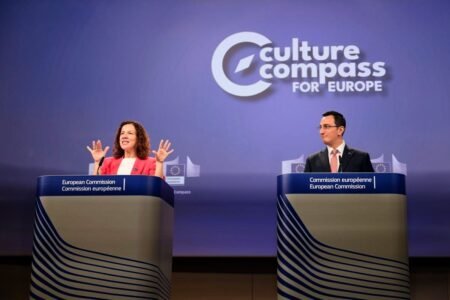Millions of Europeans engage in sport and other physical activities – an established feature of life in Europe. The EU’s policy agenda on soprt includes the new Erasmus+ programme, which promotes cooperation, dialogue and participation in all areas of sport.
Advertisement
Team spirit, solidarity and fair play
Sport is important because it:
- promotes physical and mental wellbeing
- has an educational function and promotes key social values
- brings communities together
- is a large, fast-growing economic sector
- contributes to growth and jobs.
However, problems such as doping, match-fixing and violence need attention.
The EU supports cooperation between policymakers and dialogue with sport organisations, thereby both promoting the positive values associated with sport and addressing the attendant challenges.
Sport in Erasmus+
The Erasmus+ Programme (2014-2020) focuses on grassroots sport. It can co-fund initiatives, helping to develop, share and implement innovative ideas and practices EU-wide, nationally and at regional and local level.
‘Erasmus+: Sport’ will help develop sport’s European dimension, boosting cooperation between sports organisations, public authorities and other parties. It focuses on the following areas.
Health-enhancing physical activity
The EU promotes physical activity through the sharing and promotion of good practices between EU countries and with interested parties. The EU Physical Activity Guidelines (2008) show how cross-cutting national policies can encourage this. The 2013 Council Recommendation on health-enhancing physical activity across sectors will
- encourage more effective policies in this area
- help monitor progress on and trends in physical activity levels and policies.
Physical activity is also promoted through EU health policy. The EU Platform for action on diet, physical activity and health provides a forum for addressing adverse trends.
Anti-doping action
Doping undermines fair competition, discourages people from playing or following sport, and poses health risks. In this area, the EU cooperates with
- EU countries
- the Council of Europe
- UNESCO
- the World Anti-Doping Agency.
EU countries regularly use EU frameworks to discuss anti-doping issues before meeting in more international fora. They cooperate within the EU on issues relating to athletes’ rights, doping in recreational sports and doping prevention. Erasmus+ Sport funds doping prevention projects. Employers’ organisations and trade unions may use EU social dialogue to address a range of issues, including the fight against doping.
Social inclusion, integration and equal opportunities
Sport can bridge social divides. It showcases the skills of people living with disability and empowers women and girls, providing opportunities for leadership. EU countries applying for European Social Fund and European Regional Development Fund grants are encouraged to include projects that promote social inclusion through sport. Transnational projects and international events have benefited from funding.
Combating racism and violence at sporting events
The EU encourages the police and sports authorities to share information on supporters who pose a risk and to back preventive initiatives. The Commission supported the launch of the Football against Racism in Europe (FARE) network and several related projects.
Good governance in sport
While the EU respects sports organisations’ autonomy, it promotes compliance with the following good governance principles:
- democracy
- transparency
- accountability in decision-making
- inclusiveness in the representation of interested parties.
The Commission encourages employers, athletes and sports workers to shape labour relations through European social dialogue. There are social dialogue committees for professional football and for active leisure.
Dual careers for athletes
The EU advocates providing education and vocational or professional training for young sports talents in parallel with the intensive sports training they undergo, to prepare them for dual careers. The EU Guidelines on Dual Careers of Athletes (2012) show how national and EU policies can promote this. Several projects have benefited from EU support.
Education, training, youth and sport
Education and training – The key to your future
Published in March 2014
This publication is part of the ‘European Union explained’ series
EU institutions and bodies
- European Parliament
- Council of the European Union
- European Commission
- Committee of the Regions
Funding opportunities
Publications, newsletters and statistics
Legislation
- Summaries of EU legislation on sport
- Treaty on the Functioning of the European Union – Article 165 (education, vocational training, youth and sport)







